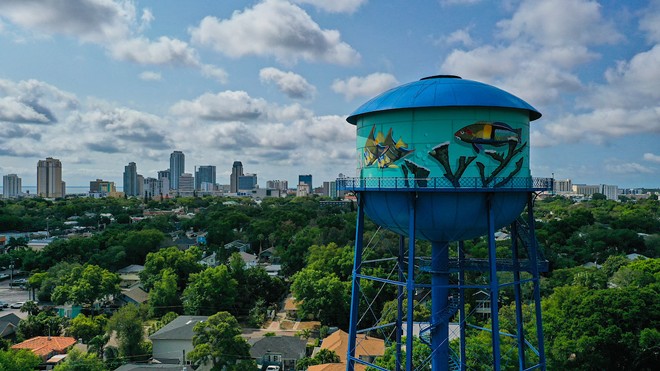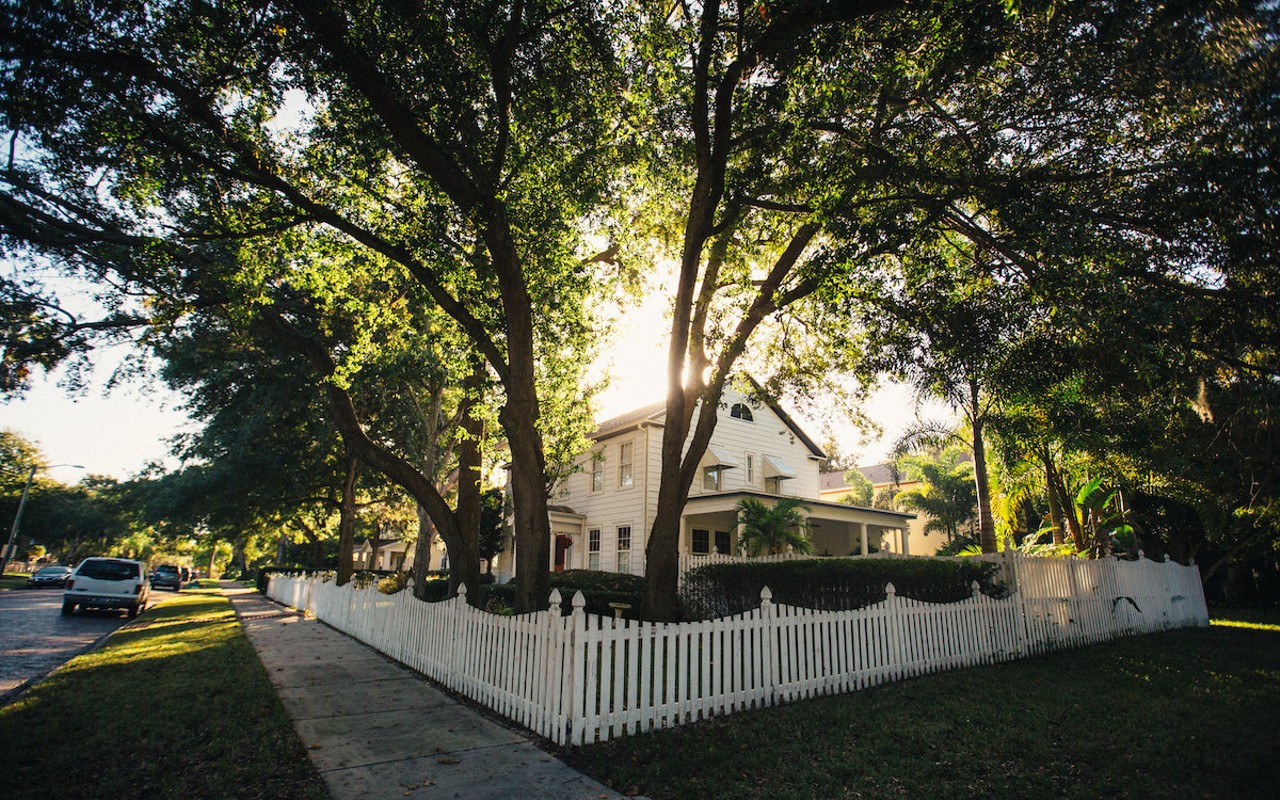
Sixty community members spoke over hours, many opposing the proposed land use changes. Dina and Damian Collum, owners of Crescent Lake Family Dentistry, started a change.org petition against the measure, which now has 1,428 signatures.
“Thousands will be affected; this isn’t some tiny issue,” Dina Collum told the council. “These are petitions from people around the neighborhood. They don’t want it!”
Another resident brought up St. Pete’s need for rent control amid an affordable housing crisis.
“If you truly seek affordable missing middle housing, only rent-controlled properties can provide affordability,” Barbra Fornuto told the council. “This measure does nothing for affordability except give it lip service.”
Jillian Bandes, president of YIMBY St. Pete, supports the measure. Bandes is also a licensed contractor and project manager at her family’s company Bandes Construction.
“Many opponents have claimed this proposal will do nothing for affordability, and they're right because when you're upzoning 3,000 units, you don’t get affordability,” Bandes told the council. “You get a small fraction developing into a quadruplex, duplex, or triplex, smaller than a single-family home, reducing rent organically without taxpayer funding.”
Resident Deborah Martohue is a land use attorney, landscape architect, and certified planner. She sent council members seven pages of data showing the plan was a bad idea. According to Martohue, 86% of greater Woodlawn homes were built before World War II, and 72% were built between 1919-1920.
“This is a very broad brush across 40 neighborhoods in our city,” Martohue told the council. “This proposal will strip the edge of 40 single-family neighborhoods across the city. That will change the character of the neighborhood.”
Derek Kilborn, manager of St. Petersburg's Urban Planning and Historic Preservation Division, assured the council that the design standards of the current zoning are “almost exactly” like those proposed. And he said historic homes would still have to receive a certificate of appropriateness from the city to move forward with any redevelopment.
Manny Leto, Executive Director of Preserve the Burg, asked the council to reconsider based on his experience living in Tampa, where similar “missing middle” rezoning occurred.
“They’re going to go into the low-income historic neighborhoods and knock those houses down,” Leto told the council. “They’re not gonna build four units, they’re gonna build two 3,000 square-feet-a-piece units, and it’s not gonna be affordable.”
Mayor Ken Welch’s administrator Rob Gerdes spoke during Thursday’s meeting in favor of increased density.
“There are numerous studies that show supply does increase affordability,” Gerdes told the council.
Concerns over parking, alleyway use, and solid waste containers prompted the council to request additional changes. The city attorneys and staff will bring back language requiring a minimum of one parking space per unit, possible alleyway improvements for three or more units, and solid waste containers.
The second and final hearing is on March 23.

















